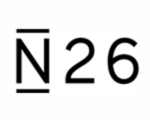Billets = bank notes
CB (carte bleue) = general term for all payment cards in France (both credit and debit)
CEP (Compte d'Epargne Logement) = long-term saving account
Change = exchange
LDD (Livret de développement durable) = Sustainable Development Booklet
Compte courant = current account
Compte d'épargne = savings account
Découvert = overdraft
Distributeur = ATM (cash) machine
Encaissement = cheque clearance
Guichets automatiques = ATM (cash) machine
Livret (or properly Compte d'Epargne sur le Livret) = savings account
Payer en espèces/en liquide = to pay in cash
PEL (Plan d'Epargne Logement) = long-term saving account
PIN (Personal Identification Number) = 4-digit code which secures the payment cards
RIB (Relevé d'Identité Bancaire) = bank account details;
For some regular payments (e.g. electricity, phone or rent) or for other transactions (such as receiving your salary), you might be asked to provide a RIB, which provides your bank account details. It is available on your bank statements and in your chequebook. You can also usually print an RIB at an ATM machine or ask for one in your bank.
Relevé de compte = statement of account
Opposition = stop a payment order
Solde = balance
TIP (Titre Interbancaire de Paiement) = interbank payment; Often after providing your RIB, you will receive bills with a detachable slip called a TIP . This has the amount to be paid and your bank account details pre-printed on it. To make the payment, you date and sign it, then to send it to the specified address - ordinary mail is adequate.
Virement = bank transfer
Glossary
Common French expressions in banking

Services
-
File U.S. taxes from abroad
 As a U.S. citizen or Green Card holder living abroad, you’ll likely need to file your U.S. expat taxes every year. Filing taxes and getting deductions you're entitled to can be complicated, especially if you live outside of the country.
More
As a U.S. citizen or Green Card holder living abroad, you’ll likely need to file your U.S. expat taxes every year. Filing taxes and getting deductions you're entitled to can be complicated, especially if you live outside of the country.
More
-
Greenback Expat Tax Services
 Tax requirements are complex for Americans - and even more so for US citizens living overseas. With ever-changing laws, it can be beneficial to have a knowledgeable and experienced tax advisor to help, as potential penalties for incorrect filing can be very costly.
More
Tax requirements are complex for Americans - and even more so for US citizens living overseas. With ever-changing laws, it can be beneficial to have a knowledgeable and experienced tax advisor to help, as potential penalties for incorrect filing can be very costly.
More
-
The first bank you’ll love
 One of the first things on your to-do list when moving to France will be to open a bank account. N26 allows you to open your account online in under 8 minutes.
More
One of the first things on your to-do list when moving to France will be to open a bank account. N26 allows you to open your account online in under 8 minutes.
More

This overview gives you an explanation of the most important terms and expressions used in the French banking sector.
By Just Landed
Services
-
File U.S. taxes from abroad
 As a U.S. citizen or Green Card holder living abroad, you’ll likely need to file your U.S. expat taxes every year. Filing taxes and getting deductions you're entitled to can be complicated, especially if you live outside of the country.
More
As a U.S. citizen or Green Card holder living abroad, you’ll likely need to file your U.S. expat taxes every year. Filing taxes and getting deductions you're entitled to can be complicated, especially if you live outside of the country.
More
-
Greenback Expat Tax Services
 Tax requirements are complex for Americans - and even more so for US citizens living overseas. With ever-changing laws, it can be beneficial to have a knowledgeable and experienced tax advisor to help, as potential penalties for incorrect filing can be very costly.
More
Tax requirements are complex for Americans - and even more so for US citizens living overseas. With ever-changing laws, it can be beneficial to have a knowledgeable and experienced tax advisor to help, as potential penalties for incorrect filing can be very costly.
More
-
The first bank you’ll love
 One of the first things on your to-do list when moving to France will be to open a bank account. N26 allows you to open your account online in under 8 minutes.
More
One of the first things on your to-do list when moving to France will be to open a bank account. N26 allows you to open your account online in under 8 minutes.
More
Further reading
- French Banking: Opening an account and using standard services
- Services: Credit cards, cheques and cash machines
Does this article help?
Do you have any comments, updates or questions on this topic? Ask them here: